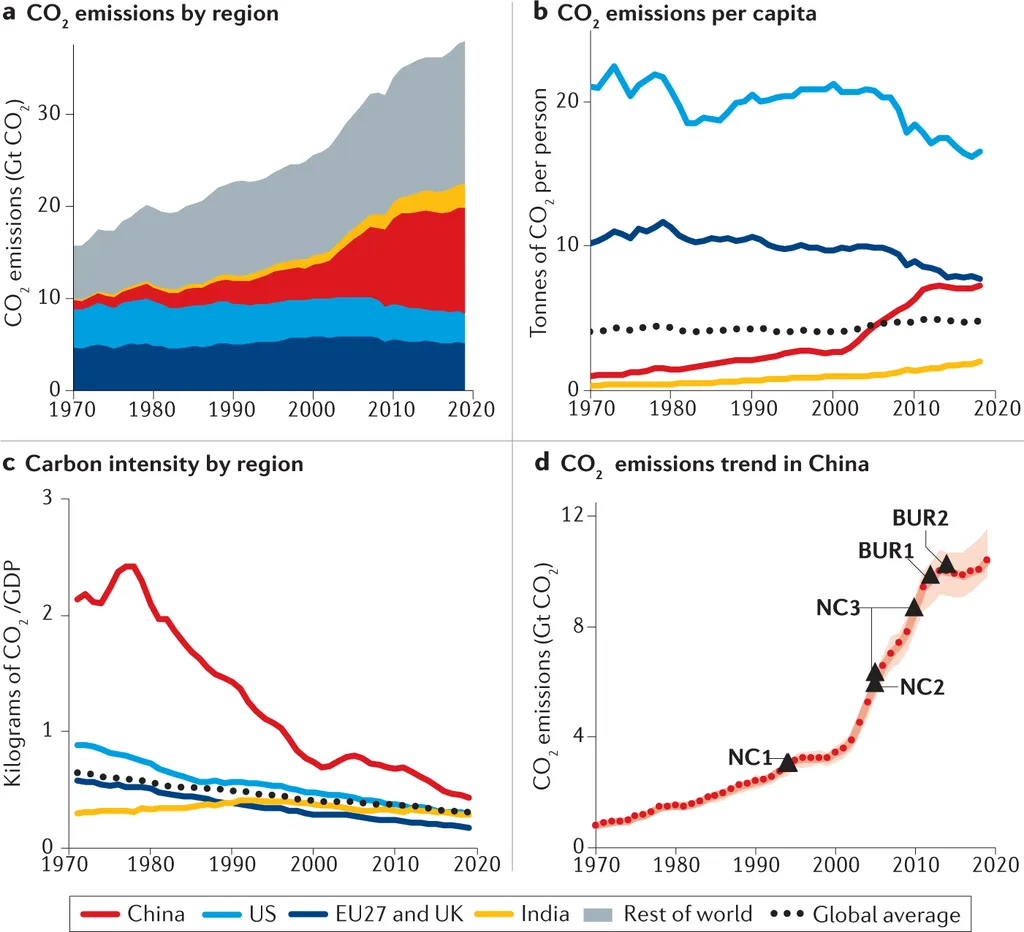In the quest to mitigate climate change, a new study has shed light on an unexpected ally: the digital economy. Researchers, led by He Yang from the College of Economics and Management at Fujian Agriculture and Forestry University in China, have uncovered a significant relationship between the digital economy and agricultural carbon emissions. Their findings, published in the journal *Frontiers in Sustainable Food Systems* (translated as “前沿可持续食品系统”), offer promising insights for the energy sector and sustainable agriculture.
The study, which analyzed provincial data from China between 2011 and 2021, revealed that the digital economy has a notable inhibitory effect on agricultural carbon emissions. “The increase of the level of digital economy within the station has a notable inhibitory effect on the agricultural carbon emissions,” Yang explained. This effect isn’t just immediate; it persists for two subsequent periods, demonstrating the lasting impact of digital advancements.
The research also highlighted spatial heterogeneity in the carbon reduction effect. The “west > east, central is not obvious” and “the north is significant, the south is vice versa” distribution suggests that the benefits of the digital economy on carbon reduction are not uniformly spread. This could imply that targeted policies and investments might be necessary to maximize the digital economy’s potential in all regions.
The study delved into the influence mechanism, revealing that the digital economy’s inhibitory effect on agricultural carbon emissions is mediated by a reduction in the use of agricultural chemical fertilizers and an increase in agricultural product yield. “There is an intermediary way to reduce the use of agricultural chemical fertilizers and increase the yield of agricultural products in the inhibitory effect of digital economy on agricultural carbon emissions,” Yang noted.
Moreover, the study found that government financial support in environmental protection and science and technology positively catalyzes the digital economy’s carbon reduction effect. This underscores the importance of policy support in amplifying the benefits of digital advancements.
For the energy sector, these findings could open up new avenues for collaboration and innovation. As agriculture accounts for a significant portion of global greenhouse gas emissions, reducing these emissions could substantially lower the overall carbon footprint. The digital economy’s role in this reduction could pave the way for new technologies and business models that align with sustainable development goals.
The study’s insights could shape future developments in the field, encouraging policymakers, technologists, and businesses to leverage the digital economy for sustainable agriculture. As Yang’s research demonstrates, the digital economy is not just about efficiency and convenience; it’s also a powerful tool for environmental stewardship. With the right policies and investments, the digital economy could play a pivotal role in mitigating climate change and promoting sustainable development.

